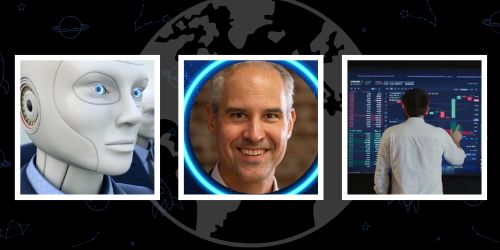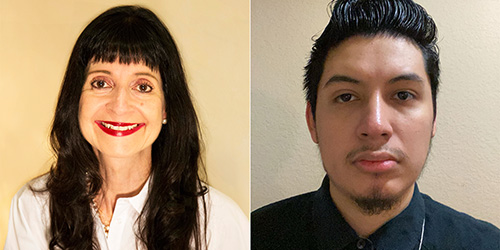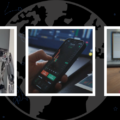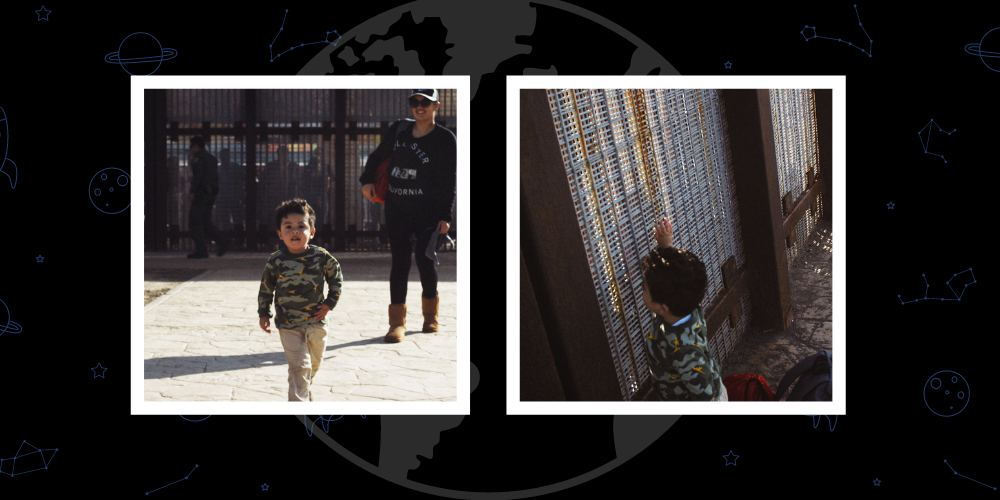This month, audiences can stream AI for a Better World: Future-Proof Your Career: Michael B. Horn on Navigating Jobs, AI and Learning. This original series is created and produced by Planet Classroom and is focused on how AI is transforming industries and society globally.
In the latest episode, host C. M. (Cathy) Rubin interviews Michael B. Horn, author of Job Moves, to uncover how AI is reshaping careers and education. Horn introduces his “Jobs to Be Done” framework, empowering individuals to align their work with personal growth while emphasizing the importance of lifelong learning. Showcasing institutions like Western Governors University and Quantic School of Business, the episode highlights innovative ways to integrate technical skills with real-world experience, preparing students for an AI-driven workforce. This compelling episode is produced by Sergio Castaneda.
For a behind-the-scenes perspective, we spoke with episode producer Sergio Castaneda about the creative process, challenges in editing, and his personal takeaways.
The Global Search for Education is pleased to welcome Sergio Castaneda.
Sergio, how did you approach editing this episode to ensure Michael B. Horn’s complex ideas about career innovation, lifelong learning, and adapting to an AI-driven world were presented in an engaging and accessible way?
Before diving into editing, I reviewed the full interview to identify key themes and ideas. My approach was to enhance Michael’s insights with carefully selected visuals and B-roll footage that resonated with his points, such as showcasing innovative learning environments, workplaces, and technologies. This ensured abstract ideas like the “Jobs to Be Done” framework were relatable and clear. Additionally, I used real-world examples from institutions Michael mentioned to create a seamless connection between his dialogue and the visuals.
What challenges did you face in visually representing abstract concepts like aligning passion with work and the “Jobs to Be Done” framework, and how did you overcome them?
Abstract concepts are always tricky to visualize. Aligning passion with work, for instance, is deeply subjective. To address this, I used metaphoric visuals—such as people immersed in creative or technical tasks—to evoke the idea of passion-driven work. For the “Jobs to Be Done” framework, I integrated footage of problem-solving scenarios and experiential learning, highlighting real-world applications. Finding reliable, high-quality external footage that matched the episode’s themes was another challenge, but extensive research and careful selection ensured the visuals supported Michael’s ideas effectively.
What were your biggest takeaways from Michael B. Horn’s insights about career progression, lifelong learning, and adapting to technological disruptions? Did any of his ideas resonate with you personally?
One of the most impactful takeaways was Michael’s emphasis on distinguishing career progression from personal growth. This resonated with me because it aligns with my own journey as an editor pursuing a career in post-production. His insights about the need for continuous learning in an AI-driven world reminded me of the importance of staying adaptable and intentional with my career choices. Michael’s ideas about aligning personal goals with evolving opportunities truly reflect how I approach my professional growth.
For young editors or filmmakers working on dense topics like AI and education, what advice would you give about balancing accurate storytelling with audience engagement? How did this project refine your approach to editing?
My advice is to start by thoroughly understanding the topic you’re working on. Research is essential to ensure you convey accurate information and build a credible narrative. To keep audiences engaged, use storytelling techniques like relatable examples, visual metaphors, and a narrative flow that connects technical details with human stories. This project refined my approach by showing me the importance of balancing technical accuracy with creativity, making even the most abstract topics engaging and digestible for viewers.
Thank you, Sergio!
C. M. Rubin and Sergio Castaneda
Don’t miss Future Proof Your Career: Michael B. Horn on Navigating Jobs, AI and Learning now streaming on the Planet Classroom Network. This film is curated by Planet Classroom.







Recent Comments